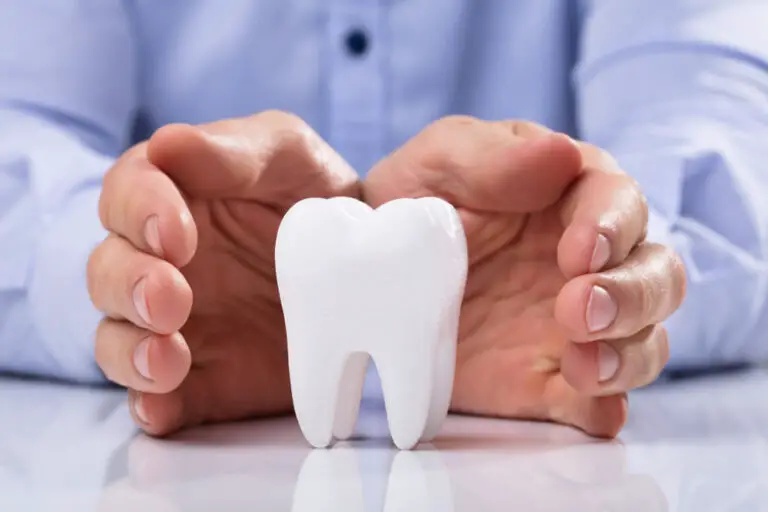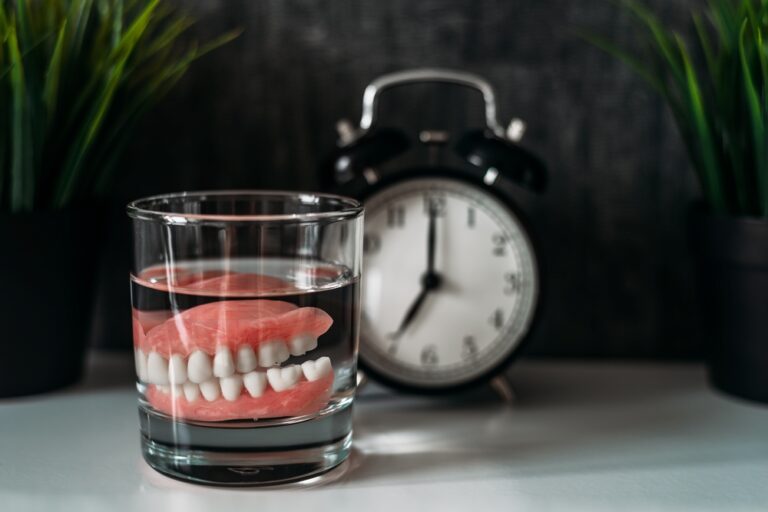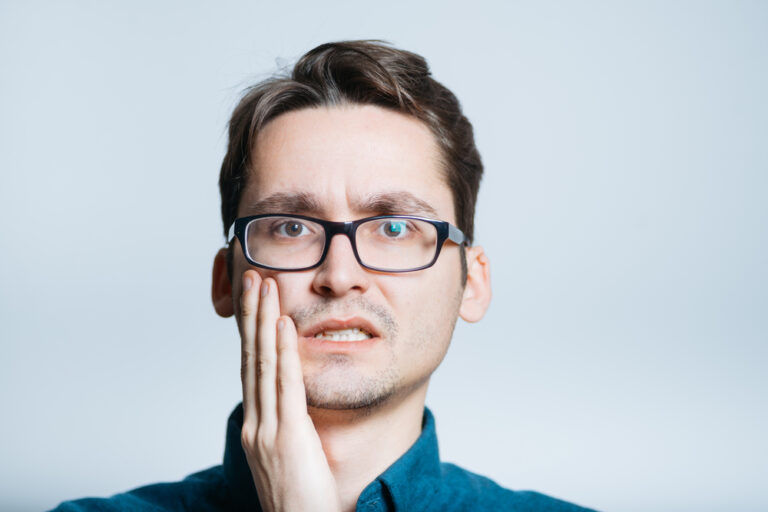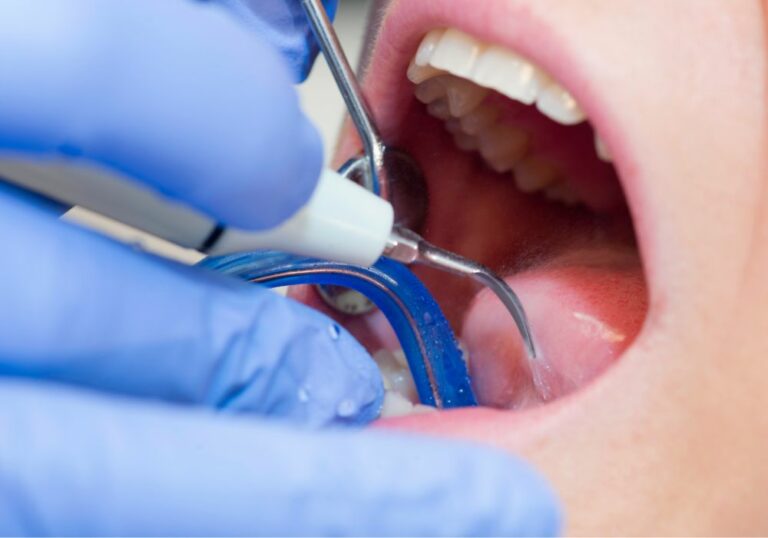As you age, your body goes through many changes, including your teeth. You may have noticed that your teeth are not as straight as they used to be or that they have shifted from their original position. This is a common occurrence for many people over the age of 50.
Teeth shifting can happen for a variety of reasons, including everyday wear and tear, genetics, and even health issues. You may also have had braces when you were younger, but now you’re noticing that your teeth are shifting again. It’s important to understand why this happens and what you can do to prevent it.
In this article, we will explore the topic of teeth shifting after 50. We’ll discuss the reasons why this happens, how to prevent it, and what your options are if you want to straighten your teeth. By the end of this article, you’ll have a better understanding of why your teeth are shifting and what you can do about it.
Understanding Tooth Movement
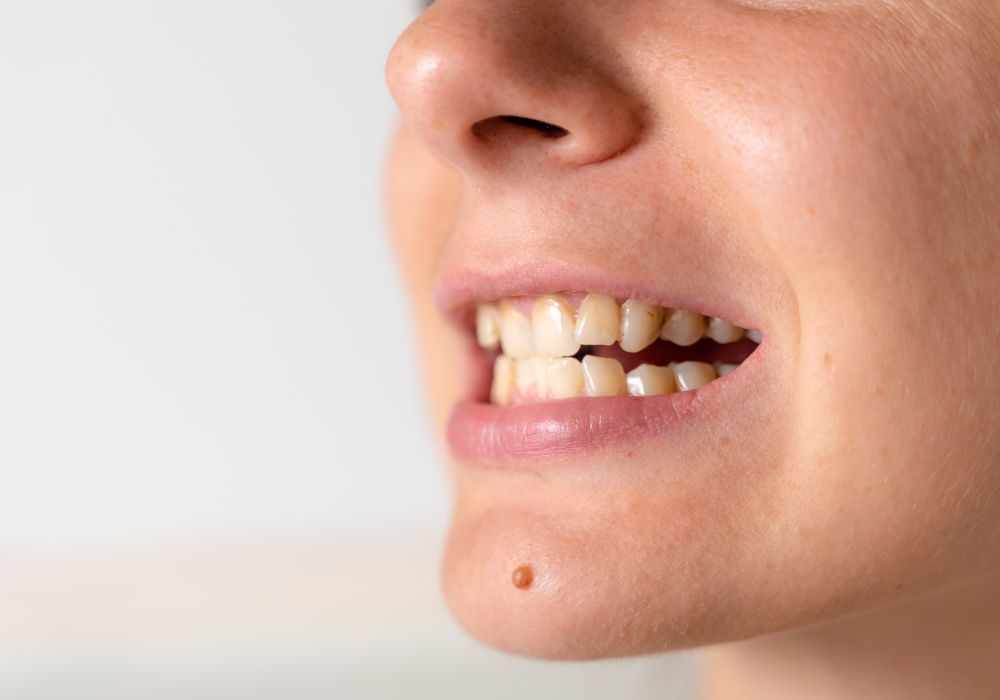
As you age, it’s not uncommon to notice changes in your teeth. Tooth movement is a natural process that occurs throughout your life, and it can be caused by a variety of factors.
One of the primary causes of tooth movement is the natural aging process. As you get older, your teeth may begin to shift and move, which can cause a number of issues such as crowding, gaps, and even bite problems.
Other factors that can contribute to tooth movement include:
- Genetics: Some people are simply more prone to tooth movement than others due to their genetic makeup.
- Trauma: If you experience trauma to your mouth or teeth, it can cause them to shift or move.
- Gum disease: Gum disease can cause the bone and tissue surrounding your teeth to deteriorate, which can lead to tooth movement.
- Missing teeth: If you have missing teeth, it can cause the surrounding teeth to shift and move in order to compensate for the gap.
If you’re concerned about tooth movement, it’s important to talk to your dentist or orthodontist. They can help you understand the underlying cause of the movement and recommend a treatment plan that will help you maintain a healthy, beautiful smile.
Age and Oral Health
As you age, your oral health needs change. It’s important to take good care of your teeth and gums to prevent dental problems. Here are some common changes that occur as you get older:
Wear and Tear
As you age, your teeth may become worn down from years of use. This can cause your teeth to become shorter and flatter, which can make it harder to chew food properly. To prevent wear and tear, avoid grinding your teeth and use a soft-bristled toothbrush.
Gum Health
As you get older, your gums may recede, which can expose the roots of your teeth. This can make your teeth more sensitive to hot and cold temperatures. To keep your gums healthy, brush and floss regularly and visit your dentist for regular checkups.
Dry Mouth
As you age, you may produce less saliva, which can cause your mouth to feel dry and uncomfortable. This can increase your risk of tooth decay and gum disease. To keep your mouth moist, drink plenty of water and chew sugar-free gum.
Tooth Sensitivity
As you age, your teeth may become more sensitive to hot and cold temperatures. This can make it uncomfortable to eat and drink certain foods and beverages. To reduce tooth sensitivity, use a toothpaste designed for sensitive teeth.
Wisdom Teeth
If you still have your wisdom teeth, they may start to cause problems as you get older. Wisdom teeth can become impacted or infected, which can cause pain and swelling. If your wisdom teeth are causing problems, your dentist may recommend having them removed.
By taking good care of your teeth and gums, you can prevent dental problems and maintain good oral health as you age.
Tooth Movement in Adults Over 50
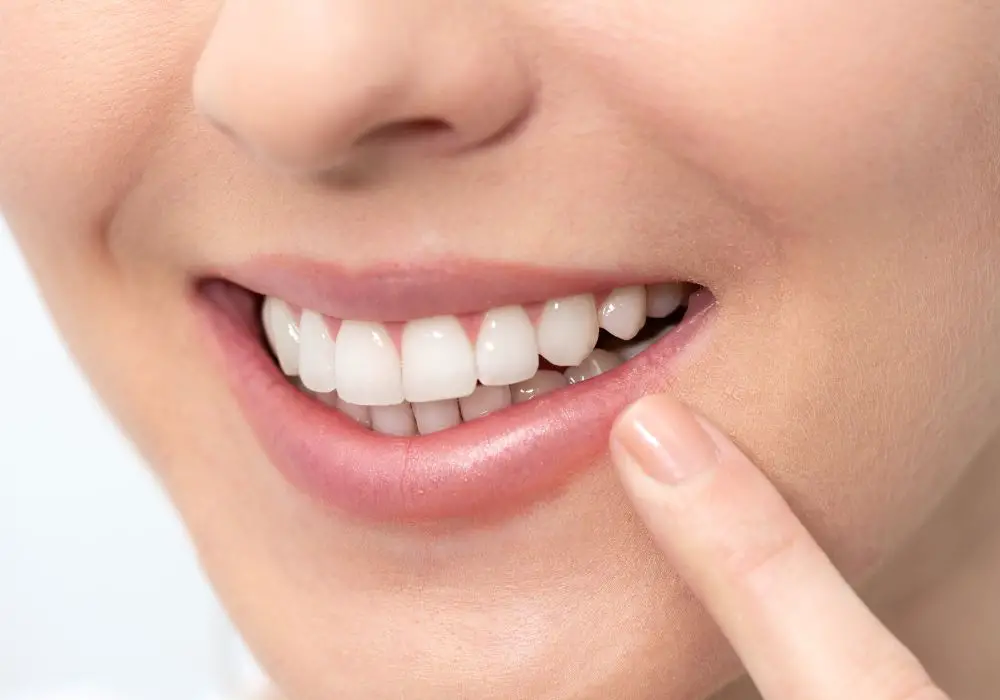
As you age, your teeth may shift or move, which can have a significant impact on your oral health. In this section, we’ll explore the causes of tooth movement in adults over 50, as well as prevention and treatment options.
Causes
There are several reasons why teeth may shift in adults over 50. Some of the most common causes include:
- Wear and tear: Over time, your teeth may become worn down, which can cause them to shift or move.
- Genetics: If your family has a history of teeth shifting with age, you may be more likely to experience this as well.
- Gum disease: Gum disease can cause your teeth to become loose, which can lead to shifting or movement.
- Missing teeth: If you have missing teeth, the surrounding teeth may shift to fill the gap.
Prevention
While tooth movement is a natural part of the aging process, there are steps you can take to prevent or minimize it. These include:
- Practicing good oral hygiene: Brushing twice a day, flossing daily, and visiting your dentist regularly can help keep your teeth healthy and prevent shifting.
- Wearing a retainer: If you’ve had orthodontic treatment, wearing a retainer can help keep your teeth in their new positions.
- Avoiding tobacco products: Smoking and other tobacco products can increase your risk of gum disease, which can lead to tooth movement.
Treatment Options
If you’re experiencing tooth movement, there are several treatment options available. These include:
- Orthodontic treatment: If your teeth are significantly shifted, orthodontic treatment may be necessary to move them back into their proper positions.
- Restorative dentistry: If you have missing teeth, restorative dentistry options such as dental implants or bridges can help prevent surrounding teeth from shifting.
- Splints or mouthguards: If you’re experiencing tooth movement due to grinding or clenching your teeth, a splint or mouthguard may be recommended to help protect your teeth.
Remember, it’s important to visit your dentist regularly to help prevent tooth movement and address any issues as soon as possible.
Impact of Tooth Movement on Overall Health
As you age, your teeth may shift, causing various dental issues. This tooth movement can have a significant impact on your overall health. Here are some ways tooth movement can affect your health:
Difficulty Chewing and Speaking
When your teeth move, it can cause difficulty chewing and speaking. This can lead to digestive problems, malnutrition, and social isolation due to embarrassment. If you notice any changes in your ability to chew or speak, it’s essential to visit your dentist to address the issue.
Increased Risk of Cavities and Gum Disease
Tooth movement can create spaces between your teeth, making it easier for food particles and bacteria to accumulate. This can lead to an increased risk of cavities and gum disease. Regular dental check-ups and cleanings can help prevent these issues.
Jaw Problems
Tooth movement can also cause jaw problems, such as temporomandibular joint disorder (TMJ). This can cause pain and discomfort in the jaw, neck, and head. If you experience any jaw pain or discomfort, it’s essential to visit your dentist to address the issue.
Aesthetics
Tooth movement can also affect the appearance of your smile. If you’re self-conscious about your smile, it can affect your self-esteem and confidence. Your dentist can provide various options to improve the appearance of your smile, such as braces or veneers.
In conclusion, tooth movement can have a significant impact on your overall health. Regular dental check-ups and cleanings can help prevent dental issues caused by tooth movement. If you notice any changes in your teeth or jaw, it’s essential to visit your dentist to address the issue promptly.
Role of Dental Care in Maintaining Position of Teeth
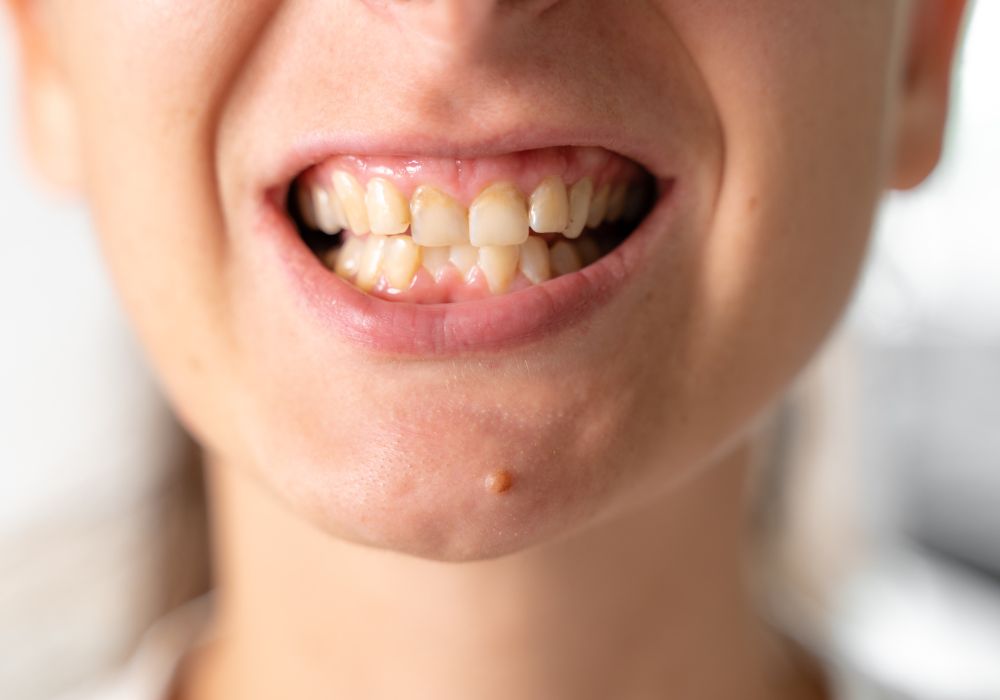
Maintaining proper dental care is crucial in preventing teeth from shifting as you age. Here are some tips to keep your teeth in their natural positions:
- Brush your teeth twice a day with fluoride toothpaste to prevent the buildup of plaque and bacteria that can cause gum disease.
- Floss daily to remove food particles and plaque from between your teeth that brushing alone cannot reach.
- Use mouthwash to kill bacteria and freshen your breath.
- Visit your dentist regularly for checkups and cleanings to detect any potential problems early on.
- Wear a retainer as recommended by your orthodontist after completing orthodontic treatment to keep your teeth in their new positions.
Additionally, some lifestyle changes can help prevent teeth from shifting:
- Avoid grinding or clenching your teeth, as this can put pressure on them and cause them to shift.
- Quit smoking, as it can cause gum disease and tooth loss, which can lead to teeth shifting.
- Eat a balanced diet that includes plenty of calcium and vitamin D to keep your teeth and bones strong.
By following these tips, you can maintain proper dental care and prevent your teeth from shifting as you age.
Frequently Asked Questions
What causes teeth to shift as you age?
There are several factors that can cause teeth to shift as you age. These include loss of jawbone density, gum disease, tooth grinding, and tooth loss. As you get older, your jawbone gradually loses density and volume, which can cause your teeth to shift out of place. Gum disease can also cause your teeth to shift by weakening the bone and ligaments that hold your teeth in place. Tooth grinding can wear down your teeth and cause them to shift over time. Finally, tooth loss can cause the surrounding teeth to shift as they try to fill in the gap left by the missing tooth.
How can you prevent teeth from shifting with age?
There are several steps you can take to prevent teeth from shifting as you age. These include maintaining good oral hygiene, wearing a retainer if recommended by your dentist or orthodontist, and avoiding habits that can damage your teeth, such as tooth grinding or chewing on hard objects. It’s also important to visit your dentist regularly for checkups and cleanings, as they can help identify any issues early on and take steps to prevent further damage.
Can teeth shift suddenly without a cause?
While teeth can shift suddenly due to trauma or injury, it’s more common for teeth to shift gradually over time due to factors such as age, gum disease, or tooth grinding. If you notice sudden or severe tooth shifting, it’s important to see your dentist or orthodontist right away to determine the cause and take appropriate action.
What is the normal age for teeth to stop moving?
Teeth can continue to shift throughout your life, but they typically stop moving by the time you reach your 50s or 60s. This is because the bone and ligaments that hold your teeth in place become more rigid over time, making it harder for your teeth to shift.
What are the signs that your teeth are shifting?
Some common signs that your teeth may be shifting include changes in your bite, gaps between your teeth, and teeth that appear crooked or crowded. If you notice any of these signs, it’s important to see your dentist or orthodontist right away to determine the cause and take appropriate action.
Is it possible to reverse teeth shifting?
While it’s not always possible to reverse teeth shifting, there are steps you can take to prevent further shifting and improve the appearance of your teeth. These include wearing a retainer if recommended by your dentist or orthodontist, practicing good oral hygiene, and avoiding habits that can damage your teeth, such as tooth grinding or chewing on hard objects. In some cases, orthodontic treatment may be necessary to correct more severe shifting.

